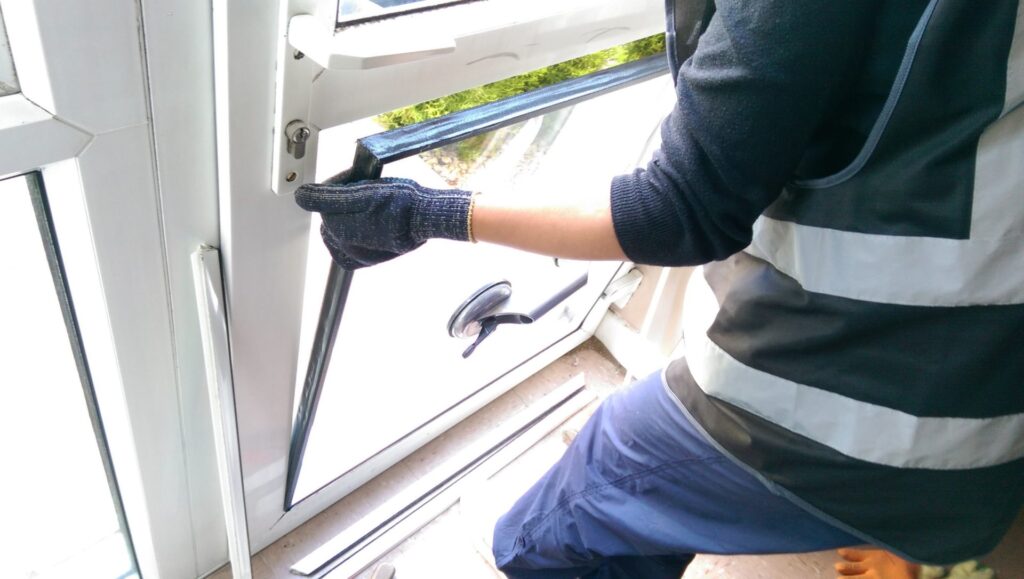Understanding Window Pane Repair: A Comprehensive Guide
Window panes are integral components of our homes, providing openness for views while protecting against external components. Gradually, however, wear and tear, climate condition, and unexpected damage can leave window panes broke or broken. When confronted with such problems, comprehending the window pane repair process ends up being essential for property owners. This post dives into the various elements of window pane repair, including methods, tools, and frequently asked questions.

When is Window Pane Repair Necessary?
Before diving into the repair approaches, it is essential to identify when a window pane requires instant attention. Here are some indications that show a repair may be necessary:
- Cracks: Cracks, whether small or big, can jeopardize your window's structural integrity and energy performance.
- Shattered Glass: If a window pane is completely shattered, it positions a security danger and requires immediate replacement.
- Foggy or Cloudy Appearance: This normally shows seal failure in double-glazed windows, and while it might not need immediate attention, it can cause further wear and tear.
- Drafts: If drafts can be felt near the window frame, it might recommend that the sealing around the glass has weakened, hence requiring repair.
Types of Window Pane Repairs
The repair techniques depend on the degree of the damage and the type of window. Here are the most typical types of window pane repairs:
| Damage Type | Repair Method |
|---|---|
| Small Cracks | Epoxy or UV adhesive application |
| Big Cracks | Replacement of the whole pane |
| Shattered Glass | Total pane replacement |
| Seal Failure | Insulating glass replacement or resealing |
| Drafty Windows | Weatherstripping or caulking around the edges |
1. Epoxy or UV Adhesive Repair for Small Cracks
For shallow damages such as small cracks, applying an epoxy or UV adhesive can effectively seal and restore the integrity of the glass. This technique is fairly easy and can be carried out without professional assistance.
Steps to Repair with Epoxy:
- Clean the Area: Remove any dirt or particles around the crack.
- Apply Epoxy: Mix the epoxy resin according to package instructions and apply it to the crack.
- Treat Time: Allow the epoxy to cure according to the maker's recommendations.
- Smooth the Surface: Once cured, sand it down to preserve a smooth surface.
2. Replacement for Large Cracks and Shattered Glass
If a window pane has extensive fractures or is shattered, replacing the entire pane is the most efficient option. This includes more elaborate work and might require professionals for appropriate setup.
Steps for Replacement:
- Remove the Broken Pane: Carefully secure the shattered or cracked glass utilizing gloves for safety.
- Prepare the Frame: Clean the frame from any fragments or leftover sealing material.
- Set Up Replacement Glass: Precisely cut a brand-new glass to size and install it into the frame, guaranteeing it is secured properly.
- Seal the Edges: Use silicone or glazing putty to seal the edges of the pane.
3. Insulating Glass Replacement for Seal Failures
Windows with seal failures may display condensation between panes. Insulating glass replacement, where the entire system is replaced, is suggested for double or triple-pane windows.
4. Weatherstripping for Drafty Windows
If windows are breezy, weatherstripping can be an outstanding solution. Here's how to do it:
Step-by-step Guide for Weatherstripping:
- Identify Draft Areas: Run your hand along the window edges to spot drafts.
- Choose Weatherstripping Material: Options consist of foam tape, rubber weatherstripping, or silicone sealant.
- Step and Cut: Measure the window edges and cut the weatherstripping to size.
- Install: Apply the weatherstripping along the edges, pressing it strongly to ensure adhesion.
Tools and Materials Needed for Window Pane Repair
Before commencing any repair, it's necessary to collect the needed tools and materials:
Basic Tools:
- Screwdriver
- Glass cutter
- Pliers
- Utility knife
- Putty knife
- Sandpaper
Products:
- Replacement glass (if needed)
- Epoxy or adhesive glue
- Silicone sealant
- Weatherstripping material
- Glazing putty
Frequently Asked Questions (FAQs)
1. How do I understand if my window is worth fixing or if it requires changing?
If the damage is minor, such as small cracks or drafts, repairs are generally enough. For serious damages like shattered glass or substantial seal failures, replacement is generally more efficient.
2. Can I repair window panes myself?
Yes, lots of window pane repairs, particularly small cracks or weatherstripping, can be done as DIY tasks. Nevertheless, for significant damage or numerous panes, seeking advice from a professional is a good idea.

3. The length of time does a window pane repair last?
Properly repaired window panes can last several years, depending on the materials used and the degree of the damage.
4. What can I do to prevent damage to my window panes in the future?
- Frequently examine windows for indications of wear.
- Keep windows tidy and unblocked.
- Use protective procedures versus extreme weather conditions.
Window pane repair is an important element of home maintenance that ensures the longevity and effectiveness of windows. Whether going with DIY techniques or hiring experts, comprehending the types of repairs and suitable tools can make the process smoother. By attending to issues immediately and successfully, homeowners can preserve their homes' visual appeal and energy effectiveness while guaranteeing security.


